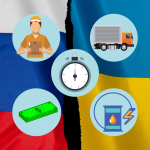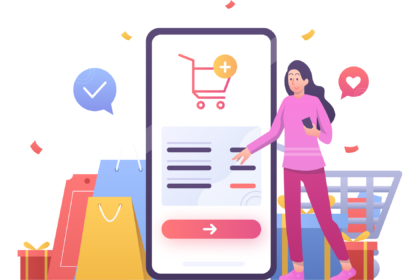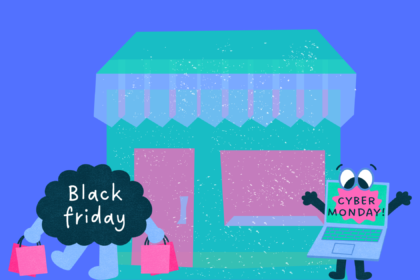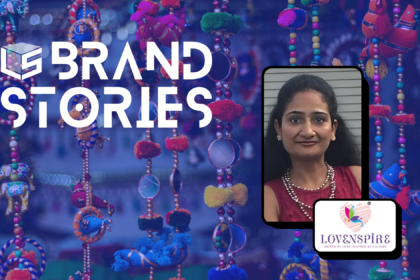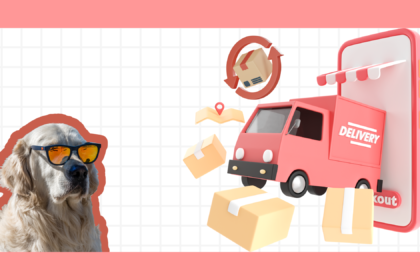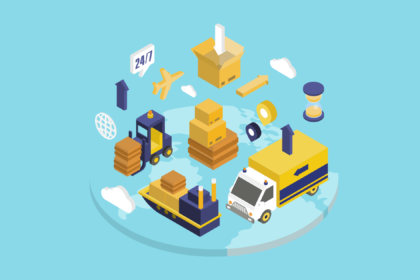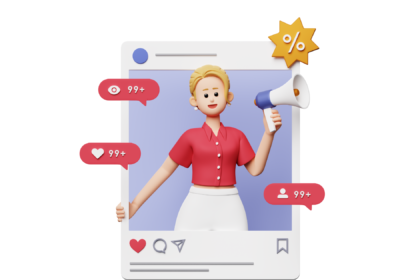The world is increasingly looking to adopt eco-friendly options in our day-to-day lives. The shift towards eco-consciousness and sustainability is now the expected benchmark for businesses world wide. And we can see brands across the globe prime themselves to this shift. Multiple corporations are taking up sustainability projects as a passion project to get in the goodbooks of their customers. But most often, these passion projects are isolated initiatives and are not built into their business model.
This is where Baraka Sheabutter has cracked the code. This ecommerce brand can be considered the pioneer of a holistic sustainable business model. Prof. Wayne Dunn has successfully created a global ecommerce network that ventures in wholesaling, D2C, leveraging sustainable private labels & small scale DIY labels on the sales side; while on the other hand have created a system for community building, reforestation, and zero waste systems on the environmental stewardship side.
Yeah, that was a lot to process even for us. And if you’re like us, you must be wondering how an ecommerce business could even dream such complex and ambitious structures of workflows, and on top of it, tie it all together in a single flowing system. And if other businesses can also find their own profitable way to make a social impact on their own terms.
To gain insights on how they managed to pull off such a feat, and how businesses can become a sustainable and profitable model like the one they’ve created, we sat with Mr. Dunn on a call.
Here’s what Mr.Dunn had to say about it.
Let me start off with a question you might be very often asked. How did you establish a business with such a strong vision? And also, could you tell us a bit about the history of Baraka shea butter?
Two things drove the start of Baraka. One of my founders is from Northern Ghana, and we were married. And we were often bringing things back and helping the women in villages around where she grew up in Northern Ghana. The women basically said, you know, we want income, not charity. We love that you bring us stuff, but we want to earn an income, not be dependent on you, and we have more control on our finances.
My wife was making some products out of shea butter, and I was bringing it back at the time. And because I was doing consulting, I had a consulting and training agency, the Corporate Social Responsibility Training Institute, we were on the cutting edge of theory and practice in the space where business meets community. This was 20 years ago, when we focused on Millennium Development Goals before the sustainable development goals. We eventually started realizing that there was a role to play on social and environmental issues and the leading businesses were finding that it didn’t have to come at a cost, it could be a strategic opportunity. So I was consulting and training on that, all over the world. And Baraka sort of started up as a hobby. As my wife was already making products out of shea butter, I thought, well, if people want to buy it, maybe we can find a way to sell it, it’ll give more income for the women and in the community. And that’s how it started.
It wasn’t until 2013-2014 did we finally ship a full container of products. Our main focus was on consulting and training, I was doing lectures and programs all over the world and, and what I started to find was that, the way I built Baraka the way we had aligned social impact, environmental stewardship, and business strategy and brand was making a great story was making a great case study for my lectures, as the model of sustainability resonated world wide. And not to mention, it was a very slow business.
Paralelly, there was a rise in the need of natural organic skincare and cosmetics products, where people were interested in knowing what goes into making these products and what’s the story of the makers. And, Baraka was providing that story, which was rooted and was both authentic and amateurish.
I started working with Lateshipment.com, as you guys had a clear value proposition – there was no cost to having you monitor my shipments. And catch the ones that were late and delayed and I knew there was a lot more you could do.That really drove the start of Baraka, and as we started to reach out more into D2C as we could meet the needs of the markets.
As the pandemic approached, we had to rethink our entire operations, as until then, we were mostly doing bricks and mortar and craft fairs while the whole world was shutting down. I never dreamed of such a change until then and I could see that people were being sent home.
I also knew there was this growing interest in DIY in the natural and organic skincare market, people wanted to make their own products and know what goes into their products. So literally, on the flight home, I came up with this strategy of sizing down our products, we didn’t have a thing under five kilograms.
At that point, I took them down to 500 grams and started to work out a marketing strategy, an order fulfillment strategy that would let us adjust to the pandemic and become a D2C brand.
Once we started to go down, we had different marks, we had to get faster and sharper on our marketing, but we also had to get more efficient on our fulfillment. And I think it was around that time, maybe sooner that I started working with late shipment, because you know, you guys were you, you had such a clear value proposition, there was no cost to having you monitor my shipments.
And, you know, and catch the ones that were late and delayed and, and I knew there was a lot more you could do, and I just never got around until recently to really take advantage of what you could do. That really drove the start of Baraka, and as we started to reach out more into, you know, some D2C, but I’ll call it a quasi-D2C because we’re selling to people who make their own product, or maybe they make it and, and sell a little bit online or to share it with family.
So it’s not quite a consumer but they were really resonating with the brand’s story and that authenticity, and the fact that we could demonstrate the impact their purchases were having.
We’re very clear in the fact that Baraka on its own will not have any impact on women and communities in Ghana, period. We only have that impact, because our customers buy into that process. And we try to give our customers content that support them in their conscious purchasing decisions and allow them for our business customers.
We try to give them content that can help support them in their own marketing so that their customers can know the impact that they’re having. So we’ve even created an entire framework for it called “Your impact”.
I mean, some people give our business credit for it and that’s just the way it goes but our business works, when we connect social and environmental impact in our far upstream reaches in the impoverished rural villages where we work with impact for our customers are getting high quality product that they can know and see where it comes from product that their customers love.
And they get there feeling good from buying and using those products? Because they know they’re making an impact. That was a long answer. I think I answered more than one question. Sorry.
That really was a very informational load. It covered quite a few of the other questions I had to thank you so much for that. Your model is not only inspiring, but also was so clearly articulated, which lets us know that it’s not always a straight path from A to B, or a combination of a variety of decisions sometimes taken on the fly, the collective impact that the customers as suppliers have on the ecosystem as a whole. Related to that, an interesting part that as well about your business, I think one of the other undulations that your business has, was that you started out primarily doing retail, direct to consumers, but then kind of branched out from there and also doing white label raw material sale to larger businesses, which don’t have their own retail labels, right. So what was the transformation like?
That’s really a really good question there. And I think so, we look at the natural and organic skincare market. As you know, there are some major major players in there, it’s a rapidly growing market, it’s many 10s of billions of dollars and growing rapidly and there’s major players and then there you know, smaller businesses, some even micro businesses that are buying ingredients, buying butters and oils making products and selling them either wholesale either through the website, again, in fairs, craft fairs and exhibits; and then there’s the the DIY market, people who are buying essentially to make for themselves and their families and maybe selling a little bit and then underneath and supporting everyone except the DIY market as the consumers the who are buying finished products to use and you often see consumers moving from consumers to DIY and, and back or you see those micro businesses are making some products, they buy some others. So our initial foray into that market was with the small and micro businesses, people were buying 25 kilos of shea butter, or five kilos of shea butter. And, you know, we started out with just shea butter. And then we added on cocoa butter and coconut oils and palm oils and but all of them with a very strong, easily easy to understand origin story, supply chain story.
We can tell you where it comes from, and the impact that it has. So we were, in essence, giving your white label branding and marketing content and tools to our customers to allow them to, to market our product. Some of our customers were using our brand. I mean, it’s ironic in a way that probably our biggest competitor in the US online market right now is a company called Brambleberry. And they’re also one of our biggest, biggest customers. So they’re actually marketing our branded products on their site. And, you know, I think they recognize the, you know, the impact branding, the halo effect that the baraka brand can have on other brands, because it’s not easy for a lot of companies and consumers. I used to teach this when I was a professor of corporate social responsibility. Everyone is expecting more from businesses. Globally there’s an expectation that businesses should it have a positive social impact and it should be an effective steward of the environment at the same time as it’s producing profits and shareholder value and that’s not always an easy thread to follow, it’s a nice needle to thread because, often the social and the environmental are seen as costs rather than contributors to value and Baraka has really focused on aligning those.
We now have a lot of people that love to see Baraka branded consumer products, and we slowly or very cautiously dipped our toe in that market, we started with the black soaps, which there’s, you know, there are a lot of sort of ad hoc black soap brands and suppliers in North America and we keep expanding our market with these base products, for example, we’ve recently launched recipe kits for our black soaps for the DIY market.
Again, that was so enlightening. The fact that brands typically think about being just one or the other, the fact that you can be successful both on the b2c as well as b2b front without being afraid about one part cannibalizing the other other parts of the business that I think will help a lot of times. How do you achieve a balance with the things you’ve mentioned? And what advice do you have for brands, especially the ones that hope to create a social impact?
Find an alignment, where social impact drives value rather than cost where environmental stewardship creates value rather than rakes a cost. I did a keynote lecture on how the path to profit has shifted. Before it used to be that the path to profit was simply by optimizing what the market wanted to buy. The more efficient you could be at creating and getting something to market that the market wanted to buy, the more profitable you’d be. And as expectations around social and environmental impact and management started to work their way in, the first response for business was to treat them as a cost. So, strategically work to minimize them and you strategically treat them as a cost. And the path to profit went from where your business is, to your profit, and social issues. And environmental issues are like little detours that you sent somebody else on, but you tried not to let them get in the way of getting your business down the path to profit.
The reality today is that those expectations on social and environmental performance are higher but at the same time there are higher financial performance expectations of investors and bankers. It’s harder for businesses to thread that needle to what to do with all of them. Traditionally businesses thinking around social impact and social responsibility was – let’s find something good to do something that’s good for society and we’ll do that and then we’ll do our business and often they were totally divorced
Traditional communities thrive on subsistence economies. When big businesses get into the market, they shift the natives to a cash based economy who wouldn’t fully grasp the potential they could create and oftentimes feel overwhelmed and run back to their original ways. The school idea of personal and economic life skills are running in families through generations. Now that there’s one or more people in a household earning cash incomes, they’ve got regular cash coming in; it doesn’t all have to be barter or subsistence anymore. So how do you manage that? How do you take advantage of the savings and loans and insurance and all of these other areas?
Teaching that to them is more of a service than creating a feeding program. That is an incredibly valuable service you’re going to do a lot of social good when you do that you can credit you know you don’t have to do it yourself you can probably find you own in your organization to do it with and when you do that your your social good is going to equal or maybe surpassed what you’re achieving before but on the business side you are getting your brand in front of your potential customers and putting yourself and your brand ahead of your competition and you’re giving yourself more educated and getting customers are better able to use your services so they’re going to get more benefit in you’ll have less churn. That’s the sort of thinking that needs to be picked up.
I don’t think anybody else could’ve put it better. Moving on from the social aspect of your business, you’re also running a very complicated supply chain network, from sourcing and directly selling in different parts of the world. What’s your take on emphasis on customer experience? How do you keep up your customer satisfaction?
I didn’t start off thinking all this through strategically or make some master plan. When we started it evolved with us but it is challenging. I mean we worked our way through finding little reaches, working with the women gathering Shae nuts, running nearly 1000 person days of our economic livelihood training right in villages and in northern Ghana.And navigating shipping through all of this is so complicated. We’ve had to add 3 months on our inventory pipeline and in finance 3 months from our inventory pipeline just because of shipping challenges. Especially during the pandemic shipping delays, I’ve had a container sit idle for 6 weeks midway. Half the products got spoiled by the time they got shipped which was not just a loss, but also looked bad for us in the face of our customers. I’m still figuring out and bringing people in, from back end operational support in Ghana to investment banks, and software like yours.
E-commerce is about what the brand stands for, and we’re lucky our story was memorable for our customers and that’s worked in our favor. None of us get it right all the time. We all make mistakes all the time. If you wait until you’re going to have a perfect you’re going to get run over by the bus coming behind you.
Some words on LateShipment.com
My exposure to Lateshipment.com was just that you had a very simple value proposition you really focused on the value your you were bringing to my business it was easy; simple to understand it was clear and and it was a medium what was that focus on on value and that as I got to know you I realized that value proposition was backed up by incredible service as well.
Interview with LateShipment.com CEO, Sriram Sridhar. Transcripted by Hemalatha Sekar.


